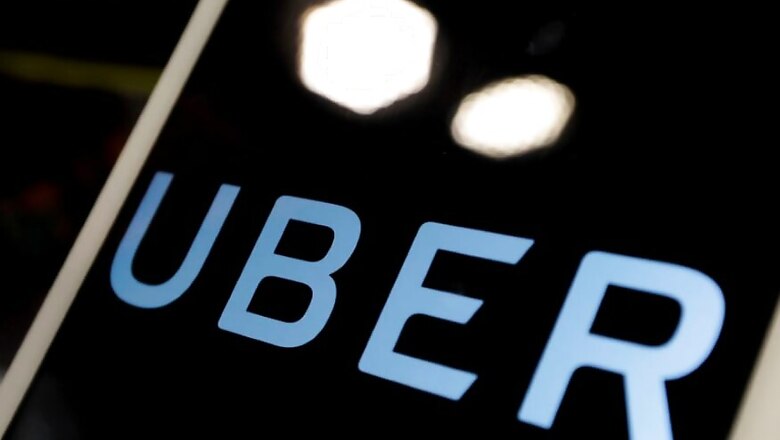
views
Underwriters of Uber Technologies’ initial public offering on Tuesday overwhelmingly recommended the company’s shares, even as they estimated deeper losses than previously expected for the ride-hailing service this year.
With the end of a quiet period related to Uber’s disastrous IPO last month, at least 16 banks involved in the public listing initiated analyst coverage of the company, all of them positive except for Citi’s “neutral” rating.
“Uber is a transformational company that should benefit from secular shifts to the sharing economy (Rides), time saving services (Eats), and more efficient marketplace evolution (Freight),” Bank of America analyst Justin Post wrote in his report, setting a $53 price target.
Uber’s stock was up 2.4% at $42.22 in afternoon trading, but the shares have dropped 6% from the price set in the May 9 IPO amid investor worries over whether the company is able to make money.
About $5 billion of Uber’s stock market value has evaporated since the hotly anticipated IPO, making that event a major disappointment for the company, its shareholders and underwriters.
“We see Uber as the most attractive Internet IPO since Facebook and believe that concerns related to Uber’s profitability outlook pose less risk than Facebook’s transition to mobile at that time,” wrote Deutsche analyst Lloyd Walmsley, rating it a “buy.”
Even as they recommended buying Uber’s stock, the analysts initiating coverage on Tuesday estimated deeper losses for the company than the analysts who previously started coverage.
Analysts, on average, now expect Uber to lose more than $6 billion in 2019, according to Refinitiv data. On Monday, the average estimate - provided by analysts not involved in the IPO - was a loss of $4.4 billion in 2019.
William Blair analyst Ralph Schackart, rating Uber “outperform” in part on the basis of its breadth of operations, estimated it will lose $9.6 billion this year.
The average estimate for Uber’s second-quarter loss per share is now $2.34, compared to $1.23 last week, according to Refinitiv.
At least 19 analysts now recommend buying Uber’s stock, while five analysts are neutral and none recommend selling, according to Refinitiv.
Citi analyst Mark May said opportunities remained in transportation services, but he was cautious about competition, regulatory pushback and uncertainty around the future of autonomous vehicles.
Uber was the biggest of a group of Silicon Valley startups that have gone public this year against the backdrop of a global stock market selloff sparked by the trade battle between the United States and China. The San Francisco-based company also faces increased regulation in several countries and wage battles with its drivers.
The company said on Tuesday the U.S. Internal Revenue Service is auditing its taxes for 2013 and 2014 and that it expects unrecognized tax benefits to be reduced within the next year by at least $141 million.
While some analysts see Uber eventually launching fleets of self-driving cars and compare it to Amazon’s ability to spread into new markets, others are focused on the company’s billions of dollars in losses and the threat of increased competition.
Analysts, on average, now see Uber’s revenue in 2019 at $13.98 billion, down from an average 2019 estimate of $14.01 billion last week.
With Tuesday’s stock gain, Uber’s shares are trading at 5.1 times expected 2019 revenue, the same valuation as smaller rival Lyft, which remains down 18% from its IPO in March.















Comments
0 comment